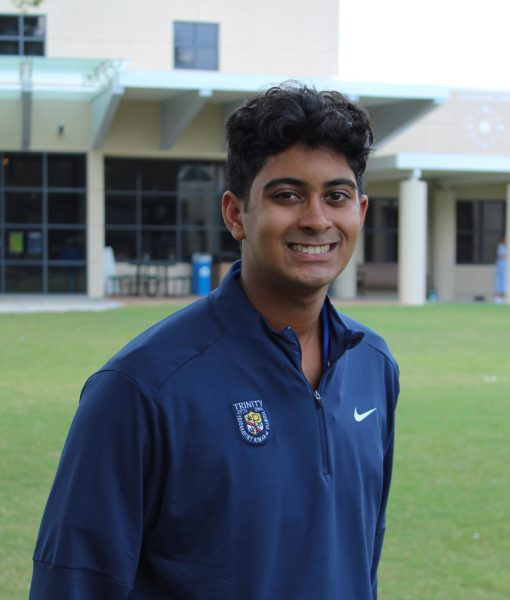Trinity Prep’s mission statement claims the school strives for diversity and inclusion, but to achieve this goal, it must take an actionable first step that has been rejected for years: implementing identity-based affinity groups.
Identity-based affinity groups like the Jewish Student Union (JSU) or the Gay-Straight Alliance (GSA) are comprised of a set of individuals bound by a common identity or interest. Affinity groups have been widely implemented across the country at all levels including high schools, universities and corporations with largely positive impacts.
“Every institution from where I went to, to where I’ve taught at, has had affinity groups,” Director of Forensics Benjamin Gaddis said. “I think that [these affinity groups]create an accessible, welcoming and approachable space, especially for individuals that may not feel welcome in the country, university or within their town or community.”
In previous years, Trinity has rejected students’ requests for a JSU and a GSA. This year, Trinity Prep has once again shut down the idea of a JSU.
“The school has not supported the idea of affinity groups due to concern that by their nature they can be considered exclusionary because they tend to require certain characteristics,” Head of the Upper School Dr. Tracy Bonday said.
The viewpoint of the administration rests upon the false notion that affinity groups are only open to those represented by the identity group. In reality, affinity groups are open to anyone who wants to join and learn about different cultures, identities and experiences.
This school policy demonstrates a clear lack of consideration for the concerns of the student body, with a Voice student survey in October showing that 83.7% of 104 upper school students support affinity groups.
“Trinity should allow [all] affinity groups because our new mission statement talks about diversity of thought and expression,” senior Rhea Maniar said. “I fail to see how we are providing for that.”
Though Trinity has classes like World Religions, textbook curriculum and community conversation are two very different things. Affinity groups provide the opportunity to go outside the bubble that is school education to learn about different identity groups.
One significant group seeking a community like this are the Jewish students attending Trinity. Although Jewish students opted to attend an Episcopalian school, they still want spaces for discussion and expression.
“[Jewish people] still feel excluded in things like Chapel and FCA,” JSU advocate sophomore Sophia Scheinberg said. “I think that it’s just really important to have a place where we can all get together and talk about the struggles we have to face.”
The key to increasing inclusivity while reducing division is the understanding that affinity groups are available to every race, religion, sexuality or ethnicity the only thing that is required is an open mind. Other schools like Montverde and Lake Highland seem to understand this idea perfectly.
“I think Montverde does a very good job of including everyone’s separate groups,” Montverde JSU President Adam Townsend said. “I think it is pivotal for everybody to understand more about not just Bishop Moore, not just Trinity, but really somewhere outside of their bubble. Other people have different ideas, different thoughts and different understandings of issues in the world.”
All public schools also have access to affinity groups in accordance with the Equal Access Act, which was supported in the Supreme Court Decision, Mergens v. Westside Community Schools. The Act and SCOTUS decision have been used to justify identity-based affinity groups across the country.
“We think that secondary school students are mature enough and are likely to understand that a school does not endorse or support student speech that it merely permits on a nondiscriminatory basis…,” Supreme Court Justice Sandra Day O’Connor wrote in a majority opinion in 1990. “On our own campus however, administration has been less receptive. Instead of allowing affinity groups, umbrella organizations like the MultiFaith Club and Diversity Club where every affinity organization is clumped together.
“When you just take a bunch of minorities who feel that they haven’t made their voice heard on campus and squish them in a room together and call it under one big umbrella as the Diversity Club, it doesn’t really serve a purpose,” Maniar said.
Interestingly, Trinity actually does have a singular identity-specific affinity group. The Fellowship of Christian Athletes (FCA). This organization fulfills all of the qualifications of an affinity group, and yet administration does not consider it to be non-inclusive. Allowing this group but none of the others creates a facade of inclusion while continuing to fail its student body.
Affinity groups give students a voice, a voice they desperately want. The mission statement’s change to “embracing diversity in thought and perspective” is a good first step, but action speaks louder than words.
“If you can show the administration that students want this, that it’s a desirable thing, then I think there’s no question that the administration listens to that,” Blickman said.
It is clear students want this, with overwhelming statistics proving that affinity groups are supported. The only question is whether the administration will take action.
“When affinity groups are taken away or not allowed, I think that we’re not giving space to these groups and we’re robbing them of their voice,” Gaddis said.
It is hypocritical that Trinity is starting to emphasize their efforts for diversity while shutting down initiatives for marginalized communities to collectivize and communicate.
“Without being seen, you can’t be heard, without being heard, your voice isn’t there,” President of Diversity Club and GSA advocate Natalie Gillan said.
Ad astra per aspera is only our song if everyone feels like they have a voice to sing it.
The lead editorial expresses the opinion of the Trinity Voice editorial staff. Please send comments to [email protected].












